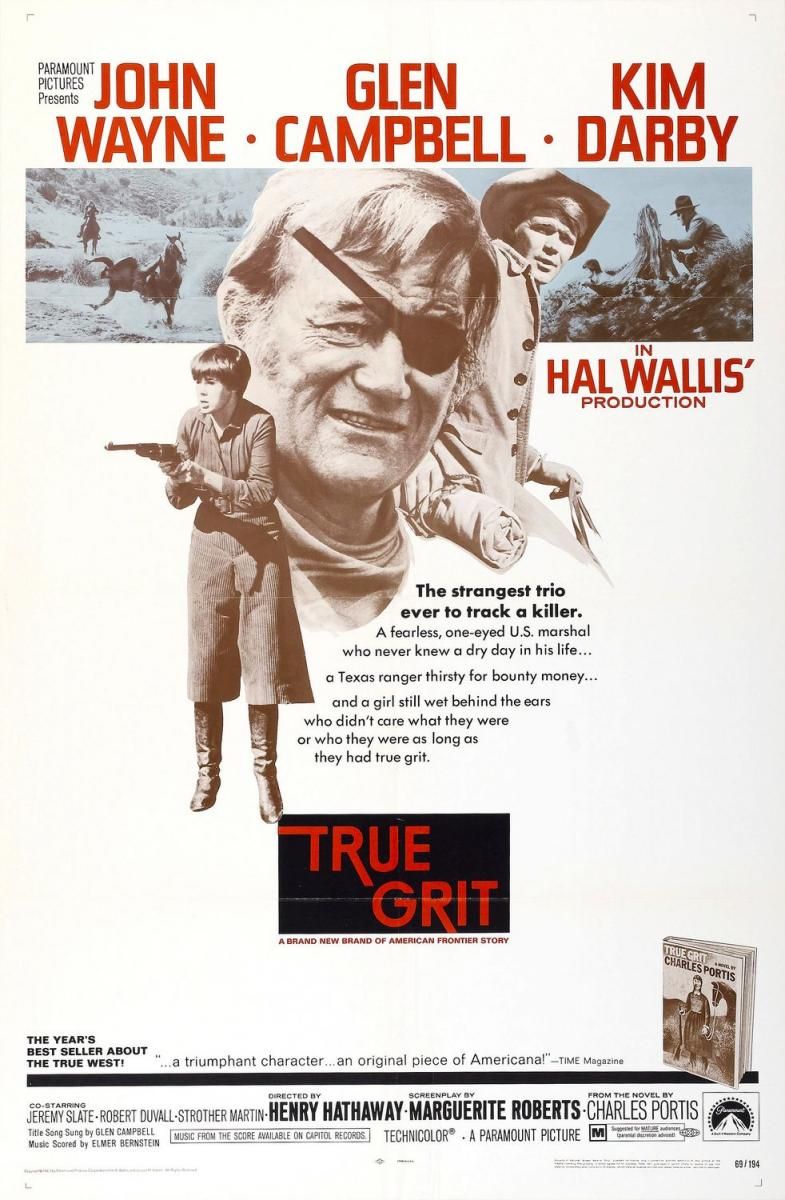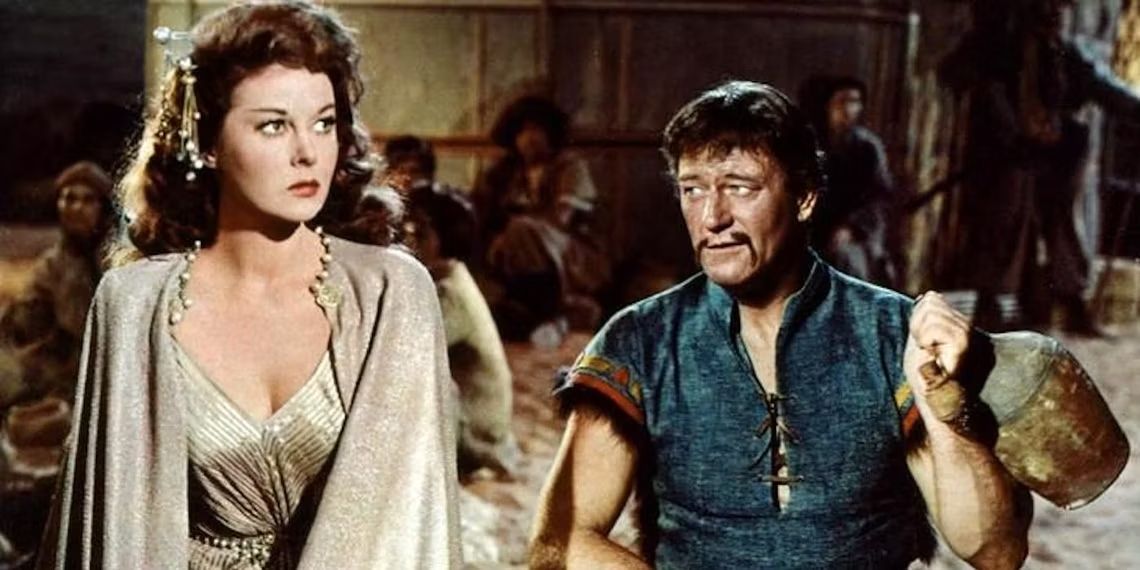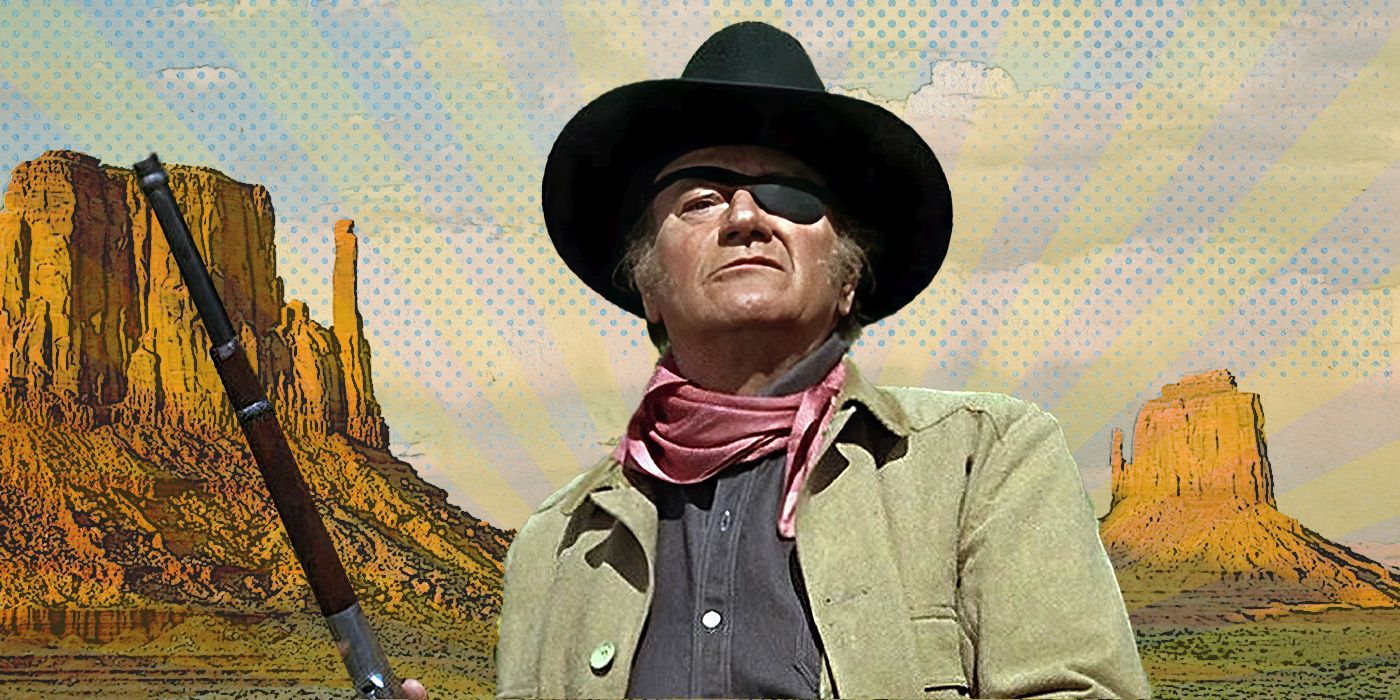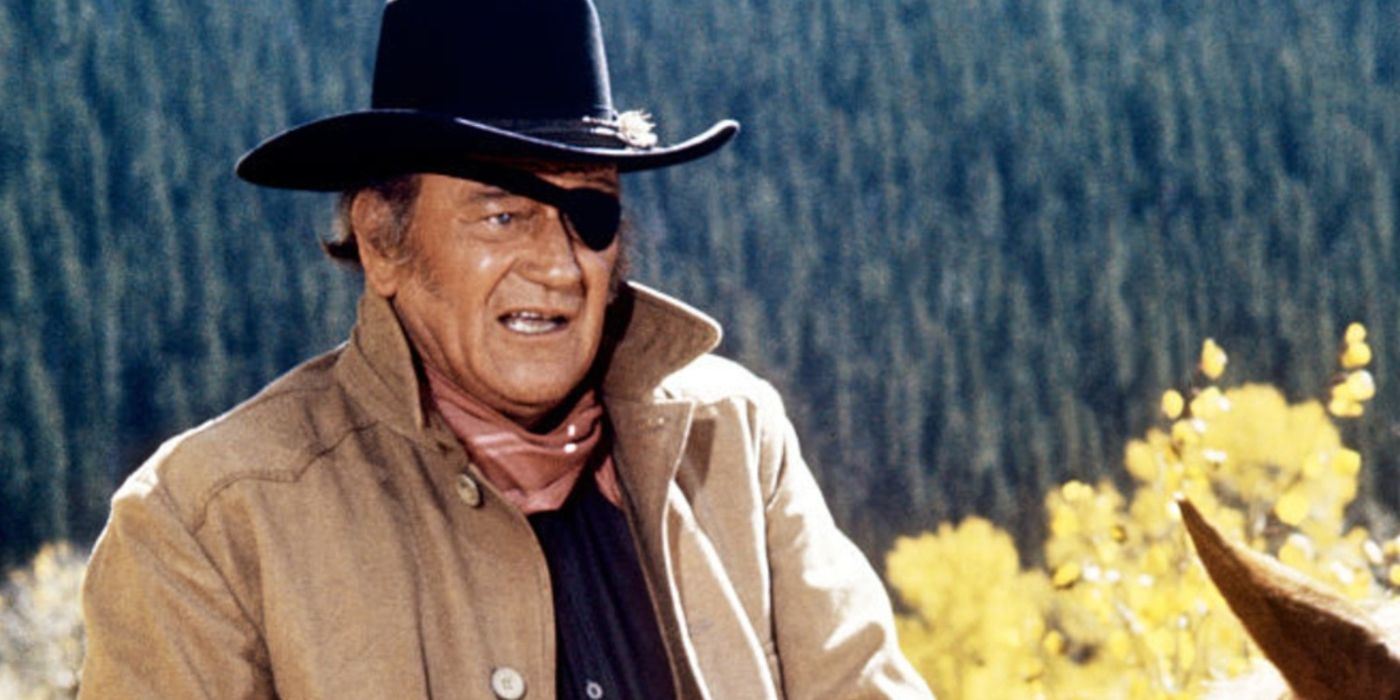The Big Picture
- John Wayne's performance in True Grit is considered one of the best of his career.
- Wayne played a unique character, showcasing humor and reluctant heroism in the film, earning him his first and only Oscar.
- A moving monologue scene in True Grit showcases Wayne's depth as an actor, and Wayne himself even cites the scene as the best acting he has ever done.
It’s safe to say that the Western genre would not have developed into one of the most popular categories of film if it weren't for the extraordinary career of John Wayne. While it was not the first Western ever made, the 1939 classic Stagecoach fulfilled everything cinephiles could want from the genre, and kicked off a notoriously illustrious partnership between Wayne and director John Ford. Although Wayne's work with Ford was arguably the highlight of both of their filmographies, Wayne worked with many great filmmakers, and began to make darker and more reflective films in the last decade of his career. In addition to finally earning him the Academy Award for Best Actor that he had long been denied, Wayne’s performance in True Grit contains what he believes is the best acting of his career.

True Grit (1969)
A determined young girl enlists the help of a tough U.S. Marshal and a Texas Ranger to track down her father's murderer in Indian Territory. As the unlikely trio ventures into dangerous lands, their quest for justice is complicated by their differing motives and the harsh realities of the Wild West.
- Release Date
- June 11, 1969
- Director
- Henry Hathaway
- Cast
- John Wayne , Glen Campbell , Kim Darby , Jeremy Slate , Robert Duvall , Dennis Hopper
- Runtime
- 128 minutes
- Writers
- Charles Portis , Marguerite Roberts
'True Grit' Has One of John Wayne’s Greatest Performances
True Grit is based on the novel of the same name by Charles Portis, which also inspired a 2010 remake by Joel and Ethan Coen that starred Jeff Bridges. Wayne stars as the aging U.S. Major Marshall Rooster Cogburn, whose cantankerous behavior and constant drinking has caused many of his peers to think that he is past his prime. However, a violent insurrection forces Cogburn to jump back into the line of fire. In Yell County, Arkansas, the farmer Frank Ross (John Pickard) is murdered by the outlaw Tom Chaney (Jeff Corey), whom he had once employed as a hired hand. Although the Texas Ranger La Boeuf (Glen Campbell) is determined to hunt Chaney down and bring him to justice under the law, Ross’ young daughter Mattie (Kim Darby) decides to hire Cogburn to help track down her father’s killer.
While he had starred in countless Westerns by the time of the film’s release, Wayne was uniquely cast in True Grit as an aging protagonist who was past his prime. Cogburn did not have the excitable energy of Sheriff John T. Chance in Rio Bravo, nor did he have the incisive rage of Major Ethan Edwards in The Searchers. Rather, Cogburn is a character who is no longer respected, and uses his new mission to help Mattie as a means of solidifying his reputation. In many ways, this felt like a self-reflective performance on Wayne’s part. While the 1960s saw the emergence of new Western stars like Clint Eastwood and Lee Van Cleef, Wayne proved in True Grit that he hadn’t lost step with the genre that had paved the way for his career.

The John Wayne Movie That Likely Killed Dozens of People
The story of one of the most disastrous Hollywood productions.Although the film strays radically from the original source material, True Grit’s depiction of Cogburn made use of Wayne’s inherent strengths as an actor. It’s often unspoken how comedically adept Wayne was, as he starred in many romantic comedies throughout his career. While True Grit is first and foremost a drama, Wayne was able to add a touch of humor to the adventure throughout the film, specifically in his interaction with La Boeuf. Cogburn’s cantankerous, somewhat nontraditional approach to following the law ends up rubbing the stuffy and proper Texas ranger the wrong way. It was also a great depiction of Wayne as a reluctant hero. Although he initially views his mission to avenge Mattie’s parents as merely one that is financially beneficial, Cogburn begins to believe in the merits of his assignment, and forms an attachment with his young employer.
John Wayne Showed His Range in This 'True Grit' Scene
Although the film certainly allowed him to chew the scenery, Wayne showed his range as a dramatic actor during a moving monologue in True Grit. When Cogburn and Mattie are waiting for the film’s villains to discover them, the aging U.S. Marshall reveals that he had once been married, and that his wife had left him at an unaccepted moment. Although he reflects on the sadness of not being able to have a family, Cogburn insists that he’d rather lose his wife than sacrifice his independence. It’s a rare moment of intimacy from a character who is uneasy about expressing his emotions. While director Henry Hathaway deserves credit for setting up the scene, it’s Wayne’s subtle performance that makes True Grit one of his greatest films ever.
While he had appeared in no shortage of memorable Western shootouts, Wayne cited the True Grit monologue scene as the greatest moment of acting in his entire career. He called the part of Cogburn his “first decent part in twenty years,” as it gave him his “first chance to play a character role instead of John Wayne.” By leaning away from his inherent idiosyncrasies and investing in the character’s backstory, Wayne felt that Hathaway had made True Grit into “a fantasy and yet he kept it an honest Western." Wayne revealed that Cogburn was “not like what I've done before,” and that the opportunity to show his range excited him.
'True Grit' Shows a Softer Side to John Wayne
Wayne’s True Grit monologue showed us a softer side of the actor we so rarely got to see during his legendary career. You get the sense as Cogburn opens up about his ex-wife that there is a heartbreaking wistfulness for the past, even if it’s a life that no longer suits him. This is particularly poignant when Mattie asks about his son. After telling her that his wife took him with her after the divorce, Cogburn looks down with a pause, shaking his head for a few seconds before stating matter-of-factly, “He never liked me anyway.” Wayne relies on a quiet understatedness here, a stark contrast to the swaggering, assertive cowboy persona that made him a Western icon.
To see Wayne portray a man in a state of vulnerability towards the end of his career only adds to the scene’s power. Cogburn is opening up, showing a side to Mattie she doesn’t normally get to see from the U.S. Marshall. It feels like a triumphant victory lap for Wayne, who is giving us one of the most intimate performances of his entire career, something that was often sorely lacking from his more traditional films.
'True Grit' Was the Summation of Wayne’s Career
Although it ended up inspiring the sequel Rooster Cogburn, True Grit was one of the last films of Wayne’s career. In that sense, it’s hard to not see Cogburn’s touching speech as a moment of reflection on Wayne’s part. Cogburn is reminiscing about what he missed out on as the result of his career, and Wayne was once again playing a Western gunslinger who is forced to show his heroism. The connection between the two makes the film even more powerful. Just as Cogburn decides to aid Mattie and prove himself worthy of wearing a badge, Wayne reaches unexpected emotional depths and delivers one of the most stirring performances of his career.
Although the Academy Awards frequently disregard great Westerns, Wayne’s performance in True Grit earned him his first and only Best Actor Oscar. Some actors earn major awards towards the end of their careers as “career prizes” for their entire body of work, but in the case of True Grit, Wayne won his award on merit alone.
True Grit is available to stream on Pluto TV in the U.S.


